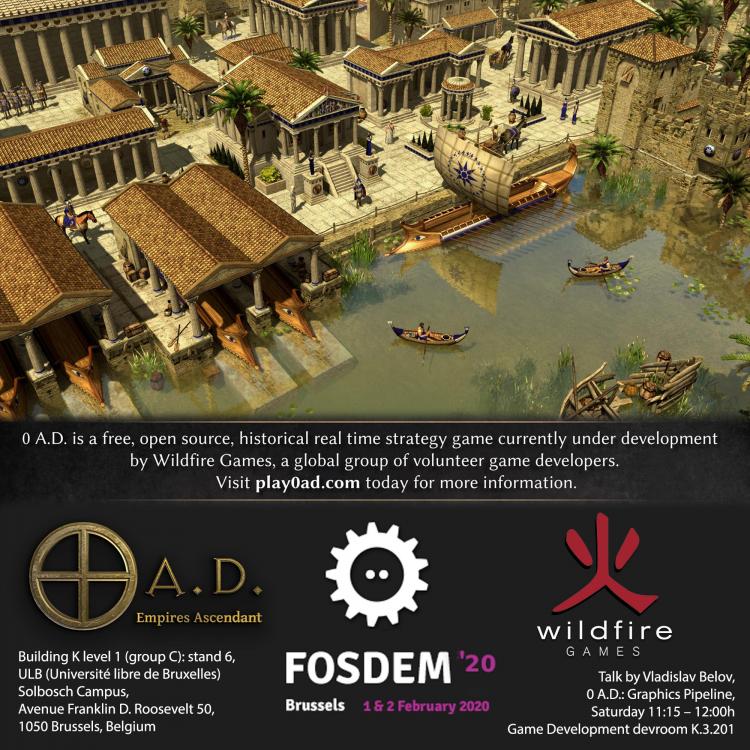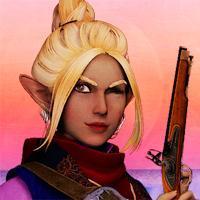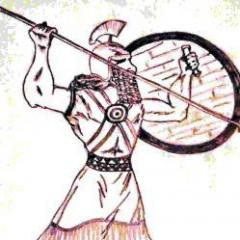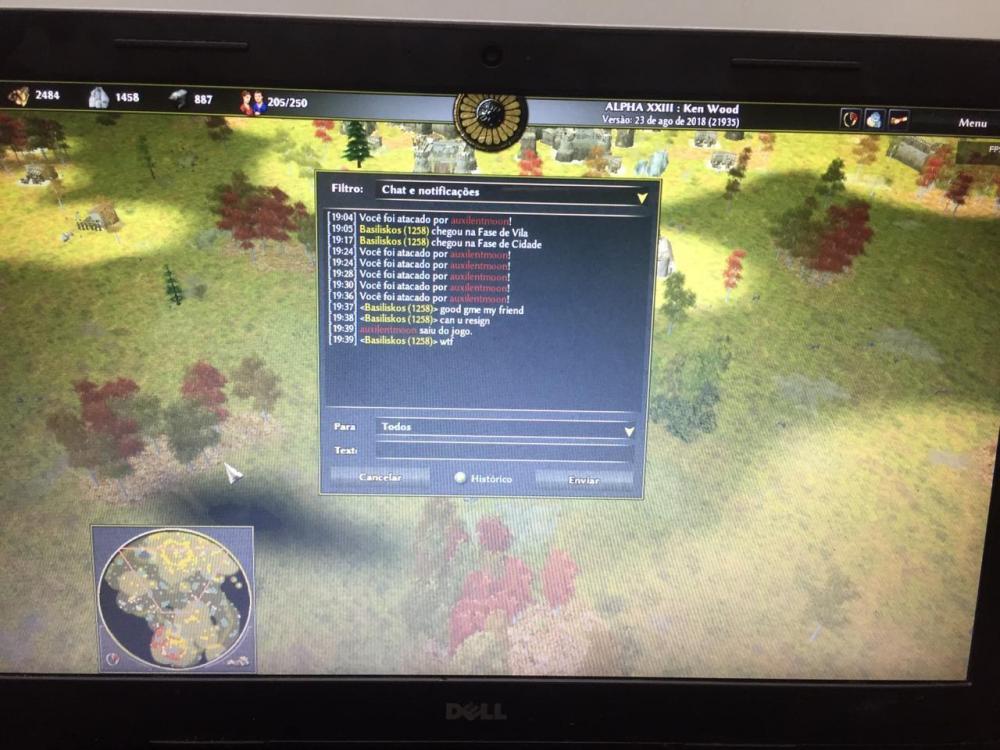Leaderboard
Popular Content
Showing content with the highest reputation on 2020-01-31 in all areas
-
Hello there, I recently gave an interview to the French association Picasoft for a podcast called "La voix est libre". Since the interview was also in French I translated so I can share it with you guys too. If people want to translate it in another language, I added the markdown transcript as an attachment below. Check out the podcast in the section “La Voix Est Libre”: https://radio.picasoft.net/co/2020-01-24.html FLOSS Video Games Guest: Stanislas Dolcini (0.A.D) Summary What one is allowed or not to do with a video game is a complex matter. Someone that just wants to make a game available to an audience which is either not financially bankable, or to give it a second life can get into trouble fast. The video game industry, as soon as it came to existence, entered a system that was not prepared to deal with the new products it had to offer, mix of unused technologies and artistic creativity. Video games do not have a well-defined position between intellectual property and patents. In such a continuously expanding and changing environment, they did not wait for the law to solve their issues and rather took the matter in their own hands. Free Software licenses are a way to address all those issues. The Interview Introduction Hello everyone, welcome on Graphit 94.9 you are listening to "La Voix est Libre" a Picasoft podcast. Picasoft is an association from the UTC of Compiègne whose goal is to make people aware of the stakes of the digital world and which is also hosting web services respectful of your privacy. Today's podcast was important to us because it talks about video games, and obviously libre videogames. We have the pleasure to welcome of the 0 A.D. developers, Stanislas Dolcini. Who are you, and on which project do you work on? Hello, I'm Stan, and I work on 0 A.D.: Empires Ascendant a project of the volunteer group Wildfire Games. It has been about 9 years since I started working on the project, but it's only been three as an official member of Wildfire Games. I have a somewhat transverse role. Officially, I'm a 3D artist, but I also write code whether it's bug fixes, scripts or utilities, and I also manage the forums, answering questions and welcoming people. In a way, I'm 0 A.D's butler. How does your project benefit from Free Software We use Free Software under all its forms, not just "actual" software. Our homegrown game engine (Pyrogenesis) is free software since 2009, but it also incorporates a variety of other free software projects, such as the GLSL pre-processor of the open source engine Ogre 3D. All the artistic contributions are under the CC-BY-SA 3.0 unported license. We are also present on Mastodon which is free software, and we use the Phabricator platform for our code contributions. How big is your team? What kinds of skill set are represented, and which are you missing? The team is made of about 30 members, and their activity and productivity evolve over time. 16 Nationalities are represented. However, some of our members have roles not directly linked to the game itself. Some do videos, take care of the finances, the hosting, translate the game, or social media... 0 A.D. was partially funded through a crowdfunding campaign, and more and more projects rely on this kind of funding to kick off. Do you think this medium is sustainable for the next open source games? As some of the Wildfire Games team member pointed out, most, if not all of the open source projects have a donation system. This funding system are in a way "crowd funding". How big the funding campaign is makes it (or not) a real crowdfunding campaign. Whether the funding is random or not makes it a crowd funding as most people think of it. So yes, I think it is a sustainable mean, saying otherwise would be ridiculous considering the number of examples there are, however I believe there are a few things that are really important to prepare those campaigns. Crowd funding campaigns are a bit of a double-edged sword, however. People usually have great expectations of such campaigns, which is what happened in 2015 for 0 A.D. we asked for about 160 000 euros on the Indiegogo platform, we raised "only" 40 000 euros. This created a great deception among the team members at the time, because they expected to be able to fund the game entirely but they ended up with enough money to make the project live, without being able to do what they had in mind. It is important to have well defined objectives, even if you must lower your goals, by saying, "if you give us that specific sum of money, it will be invested in that project". You can for example say "We need to improve our engine, so we need to support X or Y technology, so if you give us Z money, we will be able to pay W person to work on it for V time. It is also important to have a strong communication. This usually one of the issues with free software. There are a lot of programmers, people who are not always great communicators, or used to work in the spotlight. That's also one of the goals of this interview, to be able to talk about 0 A.D. and share it with a maximum of people because it brings us visibility and allows people that might have wanted to contribute to at least know this kind of project exists. Picasoft: We talked about 0 A.D. for the people that might not know 0 A.D. can you talk a little about the game, and tells us what it is ? 0 A.D. is a real time strategy game, the goal is to build your civilization. You start with a single building and then you make your city grow by recruiting new units and the goal is to have supremacy on the map you are playing on, either made with the map editor, or procedurally generated through code. If I had to give a proprietary example, you can look at Age of Empires by Microsoft, of which 0 A.D. is an open source alternative. 0 A.D. is built upon the Pyrogenesis engine and it is totally possible to create a wide variety of video games using that engine. Picasoft: Okay. A lot of interesting things have been said during this interview, we might get back at them later on, especially on the crowd funding aspect, what you said has been seen on a few other Open Source projects, like Framasoft which in its last crowd funding campaigns, for Peertube or Mobilisons had a few goals with clear results, saying for instance that if one of the goal was reached they could hire a designer for a few hours of a work. The exchange What's a video game? What is it made of? (Romain) When thinking about video games, one usually thinks about a software with a graphical interface offering content to the user. But there used to be other types of video games before, that's why Wikipedia defines video games as: "A video game is an electronic game that involves interaction with a user interface to generate visual feedback on a two- or three-dimensional video display device such as a touchscreen, virtual reality headset or monitor/TV set." The player interacts with the game through external peripherals (keyboard, mouse, joysticks...) in a virtual world, and nowadays even with the real world with augmented reality. We can mention one of the first video games called "Tennis for two" in 1958 which was played using small gamepads on an oscilloscope. A modern video game is indeed composed of a computation part that manages characters, environment and displays images on the screen (engine and code designed for video games) and of multimedia part (textures, music, 3D models, UI). It is an entertainment software able to run on multiple platforms (either open source or not such as the Xbox, the PlayStation, the RecalBox, Steam OS, arcades) What is the juridic status of video games? (Rémi) In France, the definition of what a video game was has not always been simple. Despite the (1886) Berne convention, there is what one might call a grey area for video games. It is difficult to differentiate the between the game and the platform and between the source code and the graphical assets. In the nineties it was considered both as a software work and as an audiovisual artwork. It is only with the jurisprudence judgment of 2009 (judgment Cryo) that the videogame became considered as a complex work, which implies that each part of it (software, music, video, images, text...) keep its protection regime. It's an important distinction because it allows one to separate video games in various categories: Fully open source games (like 0 A.D.), Games with a free software engine but proprietary content (using 0 A.D. but making better art and keeping it proprietary), Games with a proprietary engine but free and open source content, Fully proprietary games, A small example where the engine is open source but not the content is Jedi Knight, when Lucas Arts' was bought by Disney, the studio "Raven Software" which made the game was not okay, and released the code (though they later had to un-release it because of legal reasons) so the code was free, but we couldn't use the visuals. Nevertheless, it allowed the engine to be compiled on Linux (the game was only available on windows). If one has paid the game on Windows, he can get the art assets and play the game on Linux. Why are FLOSS video-games important? (Quentin) The first reason is that Libre software is fantastic (laughs). Various reasons can encourage to use free software to create video games. There are the obvious reasons mentioned in the podcast, decentralization, (there is little variety in big studios), privacy protection (data usually stored on one big server of the studio). It also helps innovation (everyone can give advice, contribute, give ideas). There is also a less known advantage, it's the sharing of art, video games are more and more recognized as art nowadays and making it open source allows for a broader sharing. One can only think of other reasons that are more specific of video games. A rather famous example is that of the Phoenix Wright games, which weren't translated from Japanese nor shared on the European and American because it was not considered financially sustainable. A huge community came to existence to reverse engineer the games "ROM" understand how it was built, and to create software allowing contributors to translate the game. This was a huge undertaking, which is unfortunately not common for games, thereby preventing a lot of people from playing them. We can also think of old games for example (Dungeon Keeper) where people gather to fix bugs, improve textures, extend the scenario. As soon as a game is not bringing any more money, editors put it in corner, with the game's community. The game having be been bought by players, one can see a certain injustice. One can see a certain analogy with the fan fictions for books or movies. Releasing the source code allows the community to create a great variety of derivative works and to extend considerably the initial work. Game studios understood that and start to provide systems to mod their games, adding characters, objects, textures, changing interactions. It is nevertheless a rather asymmetrical situation. The editor chooses what can be modified and what cannot It gets all the benefits of the volunteer work and the increased visibility generated by those mods It keeps the game's code secret. "Mods extend the game's lifespan by adding additional content and improving the graphical quality by proposing new interfaces and sometimes even fix bugs faster than the developer. It is customary for the game editors to rush the release of their games to occupy the market, usually around the end of year and the Christmas holidays to anticipate the end of the fiscal years. This usually leads to unfinished games, riddled with all kind of bugs, and stripped from parts of their initial content. That's were modders come into play and offer at the release of the game unofficial bug fixes and an improved game experience." ( https://larevuedesmedias.ina.fr/contenus-crees-par-les-joueurs-le-probleme-de-la-monetisation-des-mods ) Stan`: A lot of editors have in their End User License Agreements (EULA) special clauses for users to prevent them from doing such modifications. One can think of GTA, which is one of the most heavily modded game and were developers do everything they can to prevent them. There are other games like 0 A.D. which are by nature moddable because it's open source, but also like a game called Mount & Blade where it got to the point where the mods became DLC for the game. Usually though editors try to prevent modding as much as they can. I think that Nintendo or Disney usually shut down quickly every mod that touch their Intellectual property, because they consider only them can use it (Which is backed by the law). Picasoft: You told us about turning mods into DLC. Where does the money go to? Does it go the developers or the editor? It depends. In general, it's a mix of both. In this specific case though a big part of the modders have been recruited to work on the next game (Mount & Blade: Bannerlord). In general, I think the game makes money of it, though it might pay a little fee to the modders (for the rights). It's almost never only for the modders, as they usually are illegally (because of the EULA) modding the game. Picasoft: It is an absurd situation not unlike those where a big security breach is found, and either the person that found it is hired to fix it, or they get sued for discovering it. It is very common for buggy games to be fixed by the community. Talking about games that were translated, I remember hearing about a case where the editor totally shut down all the translated ROMS. Stan`: One of the most absurd cases I know, is that some games are under DRM (Software that prevents the game from being copied) where the editor patched the game with a NOCD because they didn't have the source anymore and they had to edit the executable directly. Doing so they forgot to remove the cracker's signature Picasoft: Two of the biggest examples of how mods extended the game are DOTA, a mod of Warcraft III and Counter Strike, a mod of half-life. Editors might let modders what they want if it benefits them. Stan`: The only case where I can see it legitimate to shut down mods is when the content is modified in a way that can be provocative. Other than that, I don't see any reason why not. The recent games usually have a very little lifespan, unless they are massively multiplayer, and the ability to have mods can had a few hundred to a few thousand hours of additional gameplay. Of course, for single player games it is against the benefit of the editor because it means that people keep playing the old game instead of buying the next five that came out. We could put stickers saying the "Proprietary software kills" because the Open Source extend the lifespan of everything from the programmed obsolescence because of the Linux giving new life to the old computers, to the open source games that are nearly never ending. It's not in a growth and the capitalistic state of things though. What are some of the FLOSS videogames ? (Romain) There are multiple examples of FLOSS video games, content, engines, platforms, emulators, extensions (mods...) For Video Games : 0.A.D Spring (1944, Total Annihilation, Balanced Annihilation... BAR, Zero K) Minetest Battle for Wesnoth Sauerbraten (prononcer Za-ouère-bra-teuhn) Wyrmsum Super Tux Super Tux Kart Widelands ... For Game engines : Godot Pyrogenesis (0 A.D.) Ogre Irrlicht Spring Blender (Removed in 2.8) Stan`: Speaking of which, I am co-hosting a dev room at the FOSDEM in February, and we have been reaching out to a lot of projects to know whether they would be interested to give talks about their struggles and their successes with those engines. Ton Roosendaal is coming so if you are near Brussels do not hesitate to come say hi. For open source content : Open source (usually under creative commons) music A large variety of textures, 3D models, sprites are provided under open source licenses on the internet (e.g. : https://opengameart.org/) Tools : Blender Tiled Krita Gimp All those tools usually have a wide variety of extensions, from brushes to complete overhauls. Platforms : Retroarch Recalbox Lutris (bibliothèque, aide à l'installation WINE, ...) PlayIt https://www.dotslashplay.it/ Emulators : MAME Dolphin Picasoft: Have you heard about Khaganat Stan`? Yes, I have, they are very nice people (laughs). Picasoft: We recently met squeeek that came to do a presentation about the Libre Ğ1 currency. The goal of the Khaganat is to create FLOSS MMORPG, "Libre in the possibilities it offers the players, Libre in its code, libre in its graphical resources, it's universe, it's history, libre in the tools to modify it and expand it. It is also a social and economic experiment exploring concepts rarely explored in videogames. The contributors of Khaganat bet that an easily accessible game may also generate a positive economy, and of more than usual productive human exchanges. Not based on constraint and secret but on sharing and free will." What is the most interesting in this project is Khanat, the universe? They are creating everything, from the mythology to the language while producing a lot of music and visuals. It allows people to create literally anything they want. Or as they say, to "dream". Stan`: Yeah, it is also a good example of offering non-technical people the resource and ability to do productive things. Everyone can take part of the universe creation, and the association often organizes "Khanateliers" to give that opportunity on events such as the Capitole du Libre and JDLL. They are going at slow pace, but if people want to help them, they are looking for people, so do not hesitate to come say hi on their XMPP channel. https://khaganat.net/ What are the FLOSS video game's obstacles (Rémi) The first obstacle is the platform. It might have exclusivity for the video game, its publishing, edition, or execution. Even if today a lot of games are multi-platform, they usually are not on Free Software ones (GNU/Linux, BSD, ...) or are poorly optimized for those platforms or their free software drivers. Copyright and intellectual properties are an obstacle for the saving of abandoned old games. It can also prevent the extension, the modding, and porting games on more modern platforms. Budget and advertisement are also huge obstacles, inasmuch studios working on video games generally allocate a big sum of money, allowing for a large team of professionals proficient in a variety of domains (history, linguistics, psychology, art, programming...) to be hired. Studios can also put great emphasis on communication (sponsoring, advertisement...). Libre Software, while free also need those. It can therefore be complex to gather such professionals, and to have such a big reach with regards to communication. Stan`: In the same way there are a lot of resources one can buy, on stores such as Unity's, however very few materials under Creative Commons, such as CC0 or CC-BY-SA. There are lot of license issues with regard of what you can do with the assets you buy. For instance, are you able to use an asset you bought without adding a few hundred clauses in the license file to say what you can and cannot do with that file? It's sometimes very hard to find quality assets one can reuse. The reason for which allegedly "Open source games look bad" is that most of the time one has to do everything from scratch to be sure not to break laws. Those laws are also complex. In France for instance, when releasing an asset on the Creative Commons licenses does not bereave you from the rights over the original work. In theory, one could release something under creative commons, and a few months later go back on that decision, and sue everyone that has used the material. Picasoft: For those interested, you can listen to the podcast we made on Open Source license, where for the CC0, even though that license is compatible with French law, there are rights you cannot forsake. How to support the FLOSS video game industry (Romain) There are a lot of options to help your favorite games. The first and the simplest is the financial donation. Every project has running costs and sheer volunteer work is not always enough. Secondly, if you are fluent in other languages, it can be useful to translate the game, software not in one's native language prevent one from using it (just like any software). Thirdly, if you have artistic abilities (2D, 3D, Music) free software projects might need your help. And finally, if you know how to code, you can contribute to the game engine, or create extensions, for a game is only alive if the community behind it is. Additionally, like for every free software, sharing is caring. The Quiz When I own a copyrighted edition of a video game in France, I have the right to: Port this game to another console on which it is not available (From XBOX to PS4 for instance) ? Fix bugs or security flaws ? Translate the game ? Create a game extension, or a mod ? Music Heaven in Your Mouth de Intouchwithrobots (CC-BY-NC-SA), found on freemusicarchive The Answer It's incredibly complicated and there have not been enough cases with the justice to bring light to this topic. For the first three propositions, The article L122-6-1 of the Intellectual Property French Code allows the reverse engineering (e.g. to analyze the source code of a game) only if this allows one to improve the interoperability with another software, and if there is no other choice. In this way, one could consider it legal to "port" a video game on another platform, if it done through the creation of an emulator able to run the game but modifying the game itself is not permitted. This article also mentions it is possible to modify a video game (for instance by fixing bugs)to meet its original usage. The article does not mention translation, but one can only wonder as translating is case of improving the interoperability. Finally, the ability to create extensions depends on whether you consider mods a derivative work, in which case it would be strictly prohibited, or whether it's original content, in which case no claims can be put on the modification. Once again, the law does not protect the modders in this case, because there is no contract binding them to the video game's editor. External Links https://cpi.openum.ca/files/sites/66/CPI_28-3_671_savoie.pdf https://www.legifrance.gouv.fr/affichCodeArticle.do?idArticle=LEGIARTI000028345224&cidTexte=LEGITEXT000006069414&dateTexte=20131220 play0ad.com khaganat.net mintetest.net opengameart.org https://www.dotslashplay.it/ picasoft_interview.md3 points
-
A friendly reminder, 0 A.D. will be present at FOSDEM’20 in Brussels on February 1st and 2nd. That's tomorrow, and the day after (Saturday and Sunday)! FOSDEM is a free event for software developers from around the world to meet, share ideas and collaborate. Some of our devs will be manning a stand Saturday and Sunday (Building K level 1 (group C): stand 6), and on Saturday, Vladislav Belov will be giving a talk about 0 A.D.’s graphics pipeline at 11:15 – 12:00 in the Game Development devroom K.3.201. Stan`, one of our devs, will co-host the Game Development devroom. 0 A.D. at FOSDEM’20 1st & 2nd of February 2020, Building K level 1 (group C): stand 6, ULB (Université libre de Bruxelles) Solbosch Campus, Avenue Franklin D. Roosevelt 50, 1050 Brussels, Belgium https://fosdem.org/2020/2 points
-
2 points
-
1 point
-
1 point
-
1 point
-
1 point
-
1 point
-
1 point
-
1 point
-
And again... I would like to report Bayburtlu69 for leaving a rated 1v1 game. My username is serbemas. commands.txt @user1 @Hannibal_Barca Thanks!1 point
-
one more. name: Niki777. he choose the map and run in the end. commands.txt1 point
-
1 point
-
Another report.... I would like to report MagicCrack for leaving a rated 1v1 game. My username is serbemas. commands.txt @user1 @Hannibal_Barca Thanks!1 point
-
Hi again! I would like to report Albaitar90 for leaving a rated 1v1 game.My username is serbemas. commands.txt @user1 @Hannibal_Barca Thanks!1 point
-
Hi. I would like to report Niki777 for leaving a rated 1v1 game. My username is serbemas. commands.txt @user1 @Hannibal_Barca1 point
-
Hi everyone! I would like to report UWND for quitting rated 1v1 games. My username in the game is ironbar.@user1@Hannibal_Barca commands.txt Hi everyone! I would like to report Insignis for quitting rated 1v1 games. My username in the game is ironbar.@user1@Hannibal_Barca commands.txt1 point
-
Hi everyone! I would like to report King_Soly for quitting rated 1v1 games. My username in the game is ironbar.@user1@Hannibal_Barcacommands.txt1 point
-
Hello, I report quitting the game by player Basiliskos, almost at the end, when the game was 100% won. @user1 @Hannibal_Barca Best regards, HerrZ commands.txt1 point





.thumb.jpg.b85f1db9873287a0d10cd2c7e88579c0.jpg)
.thumb.png.ce58cea22940c255f5b0a735d5abee36.png)


